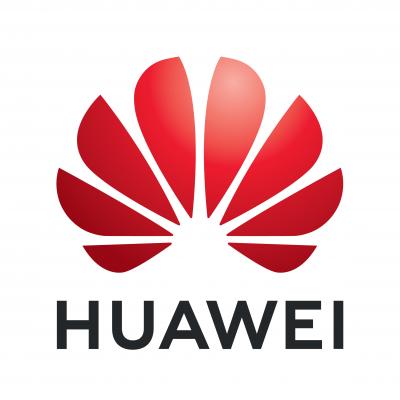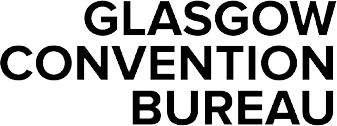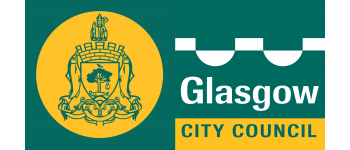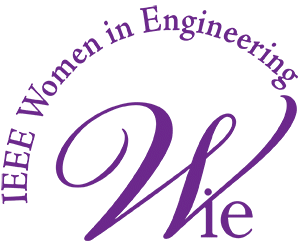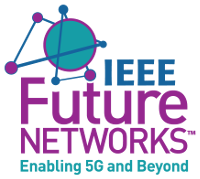Panel 1: Role of Industrial Research Centers in Future Telecom Research
Panel 2: Role of Verticals in 6G
Panel 3: Will Semantics Be the Disruption That People Are Expecting for 6G?
PANEL 1: ROLE OF INDUSTRIAL RESEARCH CENTERS IN FUTURE TELECOM RESEARCH
Monday, 27 March 2023 11:00-12:30 Lomond Auditorium
Moderator: Majid Butt, Nokia
Panelists:
Luiz A. DaSilva, Commonwealth Cyber Initiative, VT
Carlos Faouzi Bader, Technology Innovation Institute in Abu Dhabi
Rahim Tafazolli, 6G Innovation Centre, University of Surrey
Dan Kilper, CONNECT Center, Trinity College Dublin
Biographies:
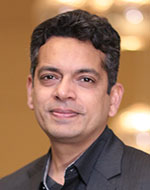 MAJID BUTT (MODERATOR)
MAJID BUTT (MODERATOR)
M. Majid Butt received the M.Sc. degree in digital communications from Christian Albrechts University, Kiel, Germany, in 2005, and the Ph.D. degree in telecommunications from the Norwegian University of Science and Technology, Trondheim, Norway, in 2011. He is a senior research specialist at Nokia Bell Labs, USA, and an adjunct Research Professor at Trinity College Dublin, Dublin, Ireland. Prior to that, he has held various positions at the University of Glasgow, U.K., Trinity College Dublin, Ireland, and Fraunhofer HHI, Germany. His current research interests include communication techniques for wireless networks with a focus on radio resource allocation, scheduling algorithms, energy efficiency, and machine learning for RAN. He has authored more than 75 peer-reviewed articles and 4 book chapters. He also has contributed to more than 50 filed/granted patent families in cellular networks domain and was declared outstanding Nokia inventor of the year for 2021. Dr. Butt was a recipient of the Marie Curie Alain Bensoussan Post-Doctoral Fellowship from the European Research Consortium for Informatics and Mathematics. He serves as an associate editor for IEEE Communication Magazine, IEEE Open Journal of the Communication Society and IEEE Open Journal of Vehicular Technology. He is IEEE COMSOC distinguished speaker for the class of 2022-2023.
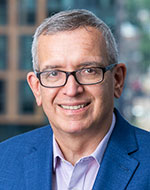 LUIZ A. DASILVA
LUIZ A. DASILVA
Luiz A. DaSilva is the inaugural executive director of the Commonwealth Cyber Initiative (CCI) and the Bradley Professor of Cybersecurity in the Department of Electrical and Computer Engineering at Virginia Tech. Prior to that, he was the telecommunications chairholder at Trinity College in Dublin, Ireland, and director of CONNECT – the Science Foundation Ireland Centre for Future Communications and Network. DaSilva is a Fellow of the Institute of Electrical and Electronic Engineers (IEEE) for his contributions to cognitive networking and to resource management in wireless networks. He pioneered the application of game theory to analyze and design wireless networks, authoring the first book on the topic. He has also been an IEEE Communications Society Distinguished Lecturer (2015-18), a Fellow of Trinity College Dublin, and a Virginia Tech College of Engineering Faculty Fellow.
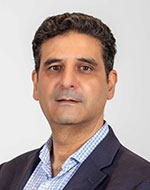 CARLOS FAOUZI BADER
CARLOS FAOUZI BADER
Faouzi Bader received his PhD degree (with Honours) in Telecommunications in 2001 from Universidad Politécnica de Madrid (UPM), Madrid-Spain. He joined the Centre Technologic de Telecomunicacions de Catalunya (CTTC) in Barcelona-Spain as research associate in 2002, and from 2006- to 2013 as Senior Research Associate. From June 2013 to end December, he has been as Associate Professor at CentraleSupélec (France). Since 2017, he is as Honorary Adjunct Professor at University of Technology Sydney (Australia), and during 2018-2019 the Head of Signals & Communications department at Institute of Electronics and Digital Technologies (IETR) in Rennes-France. From 2020 to end 2021, he took the position of the Director of research at Institut Supérieur D’Electronique de Paris-ISEP (France). From end of December 2021, he is Director Telecom unit at the AI and Digital Scienece Research Center -AIDRC at the Technology Innovation Institute (TII) in Abu Dhabi-UAE. His research activities mainly focus on IMT-advanced systems as: 5G networks and systems, Cognitive Radio communication environment, and THz wireless communications (6G). He has been involved in several European projects from the 5th-7th EC research frameworks (8 EU funded projects and 10 national projects), from 2012 to 2013 he has been the general coordinator and manager of the EC funded ICT "EMPhAtiC" project focusing on "Enhanced Multicarrier Techniques for Professional Ad-Hoc and Cell-Based Communications". From 2007-2021. Prof. F. Bader has been the main coordinator of the BRAVE ANR French project at CentraleSupélec (France) where the main goal was the achievement of efficient waveform for THz/Terabits wireless communication devices. He has published over 45 journals, 136 papers in peer-reviewed international conferences, more than 13 book chapters, and 4 edited books. He served as Technical Program Committee member in major IEEE ComSoc and VTS conferences (ICC, PIMRC, VTC spring/fall, WCNC, ISWCS, GLOBECOM, ICT). He is IEEE Senior Member since 2007.
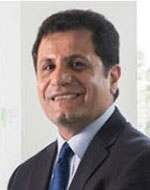 RAHIM TAFAZOLLI
RAHIM TAFAZOLLI
Rahim Tafazolli is Regius Professor of Electronic Engineering, Professor of Mobile and Satellite Communications, Founder and Director of 5GIC, 6GIC and ICS (Institute for Communication System) at the University of Surrey. He has over 30 years of experience in digital communications research and teaching. He has authored and co-authored more than 1000 research publications and is regularly invited to deliver keynote talks and distinguished lectures to international conferences and workshops.
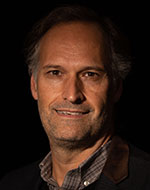 DAN KILPER
DAN KILPER
Dan Kilper is Professor of Future Communication Networks and Director of the SFI CONNECT Centre, Ireland’s centre for future communications and networks. He holds an adjunct faculty appointment at the Columbia University Data Science Institute and the College of Optical Sciences at the University of Arizona. He started his career at Bell Labs as a Member of Technical Staff where her served on the Bell Labs Advisory Council on Research and was part of the Bell Labs President’s Gold Medal award team for R&D that led to the first operational continental-scale transparent fiber optic network. He is the founder of Palo Verde Networks, Inc., which is developing innovative technologies that enable fiber optic networks to be more intelligent and agile. He serves as the Green Internet and Service Provisioning topical area editor for the IEEE Transactions on Green Communications and Networking journal and co-chair of the Optics Working Group of the IEEE International Network Generations Roadmap. In 2019, he was recognized with the NIST Communication Technology Lab Innovator Award. He holds thirteen patents and authored six book chapters and more than one hundred sixty peer-reviewed publications. His research is aimed at solving fundamental and real-world problems in communication networks, addressing interdisciplinary challenges for smart cities, sustainability, and digital equity.
PANEL 2: ROLE OF VERTICALS IN 6G
Tuesday, 28 March 2023 11:00-12:30 Lomond Auditorium
Moderator: Amitava Ghosh, Nokia
Panelists:
Doug Castor, InterDigital, US
Andreas Mueller, Bosch, Germany
Gerhard Fettweis, TUD, Germany
John Humbert, T Mobile, US
Biographies:
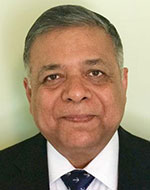 AMITAVA GHOSH (MODERATOR)
AMITAVA GHOSH (MODERATOR)
Amitabha (Amitava) Ghosh (F’15) is a Nokia Fellow and works at Nokia Standards and Strategy. He joined Motorola in 1990 after receiving his Ph.D in Electrical Engineering from Southern Methodist University, Dallas. Since joining Motorola he worked on multiple wireless technologies starting from IS-95, cdma-2000, 1xEV-DV/1XTREME, 1xEV-DO, UMTS, HSPA, 802.16e/WiMAX and 3GPP LTE. He has 60 issued patents, has written multiple book chapters and has authored numerous external and internal technical papers. He is currently working on 5G Evolution and 6G technologies. Recently, he was elected chair of the NextGA (US 6G initiative) National Roadmap Working Group. His research interests are in the area of digital communications, signal processing and wireless communications. He is the recipient of 2016 IEEE Stephen O. Rice and 2017 Neal Shephard prize, member of IEEE Access editorial board and co-author of the books titled “Essentials of LTE and LTE-A” and “5G Enabled Industrial IoT Network”.
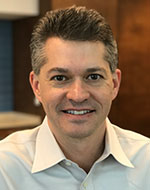 DOUGLAS CASTOR
DOUGLAS CASTOR
Douglas Castor is Head of Wireless Research at Interdigital, where he leads the incubation and development of emerging technologies for wireless systems. Since joining InterDigital in 2000, he has led teams in both product development and research innovations for 3G through 6G cellular and IEEE Wi-Fi technologies. Key topics currently under Doug’s leadership include extending cellular to sub-THz frequencies, enhancing performance through extreme MIMO and spectrum sharing techniques, enabling “near zero power” cellular modems, and the integration of communication and computing systems. Prior to joining InterDigital, Doug held Communication Engineer positions at General Electric, Lockheed Martin, and General Atronics. He holds over 25 US granted patents. Doug earned a BSEE from the Pennsylvania State University (1992) and MSEE degree from the University of Pennsylvania (1995). Doug is a founder and leader for the annual 6G World 6G Symposium. He currently holds industry board positions at NYU Wireless, and Northeastern University’s Wireless Internet of Things. Doug is a Vice Chair of ATIS’s Next G Alliance 6G National Roadmap Working Group, and was editor of its first 6G Roadmap Report.
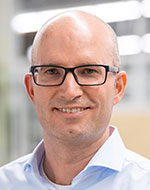 ANDREAS MUELLER
ANDREAS MUELLER
Dr. Andreas Mueller is Chief Expert for Communication Technologies for the IoT and at the same time responsible for the main 6G activities of Bosch across different business units. In addition to that, he has been coordinating and driving the Industrial 5G activities of Bosch over the past couple of years. Andreas also serves as General Chair of the “5G Alliance for Connected Industries and Automation” (5G-ACIA), the globally leading initiative for driving and shaping Industrial 5G. He has a strong background in both telecommunications and vertical industry applications and is therefore well-positioned to drive the 5G/6G-enabled transformation in different vertical industries.
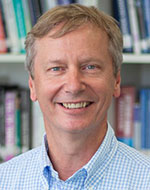 GERHARD FETTWEIS
GERHARD FETTWEIS
Gerhard P. Fettweis is a Vodafone Chair Professor at TU Dresden since 1994 and the founding director of the Barkhausen Institute since 2018. He earned his Ph.D. under H. Meyr from RWTH Aachen in 1990. After being a postdoc at IBM Research, San Jose, CA, he moved to TCSI Inc., Berkeley, CA. He coordinates the 5G Lab Germany. In 2019 he was elected into the DFG Senate. His research focuses on wireless transmission and chip design for wireless/IoT platforms, with 20 companies from Asia/Europe/US sponsoring his research. He also serves on the board of National Instruments Corp, and advises other companies.
Gerhard is a member of the German Academy of Sciences (Leopoldina), the German Academy of Engineering (acatech), and received multiple IEEE recognitions as well as the VDE ring of honor and the Semi Europe award. In Dresden, his team has spun out nineteen start-ups, and set up funded projects in volume of close to EUR 1/2 billion.
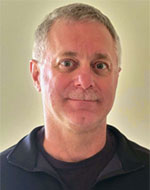 JOHN HUMBERT
JOHN HUMBERT
John is a Member of the Technical Staff at T- Mobile USA where he develops next generation system standards and leads the vision development efforts for the future of wireless communications ecosystems. John has over 30 years of wireless experience and holds 28 patents for cellular systems. He has been an integral part of the industry development of several generations of standards. He currently leads 6G Roadmap activities and MAC standards groups for T-Mobile USA. Previously active in ITU WP-5D, WiMAX, NGMN, IEEE 802 and ATIS.
Panel 3: Will Semantics Be the Disruption That People Are Expecting for 6G?
Wednesday, March 20, 2023 9:30 -10:30 Lomond Auditorium
Moderator: Jean Claude Belfiore, Huawei
Panelists:
Merouane Debbah, Technology Innovation Institute
Walid Saad, Virgina Tech
Aurelien Sagnier, Huawei Technologies
Biographies:
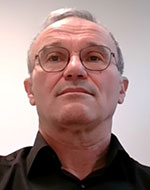 JEAN-CLAUDE BELFIORE (MODERATOR)
JEAN-CLAUDE BELFIORE (MODERATOR)
Jean-Claude Belfiore graduated from Supelec, got his PhD from Telecom Paris and the "Habilitation à diriger des Recherches" HdR from Université Pierre et Marie Curie (UPMC). Until 2015, he has been with Telecom Paris as a full Professor in the Communications & Electronics department. In 2015, he joined the Mathematical and Algorithmic Sciences Lab of Huawei as the head of the Communication Science Department and is, since 2021, the director of the Advanced Wireless Technology Lab in Paris. Jean-Claude Belfiore has made pioneering contributions in modulation and coding for wireless systems (especially space-time coding) by using tools of number theory. He is also one of the co-inventors of the celebrated Golden Code of the Wi-Max standard. Jean-Claude Belfiore is author or co-author of more than 200 technical papers and communications and has served as advisor for more than 30 Ph.D. students. He was Associate Editor of the IEEE Transactions on Information Theory for Coding Theory and has been the recipient of the 2007 Blondel Medal.
Within Huawei, he has been involved in the 5G standardization process, essentially in Channel Coding (Polar Codes for 5G) and is now working in wireless communications for 6G, on artificial reasoning and future wireless networking for intelligent machines, using topos theory, as a promoter of semantic information and communication.
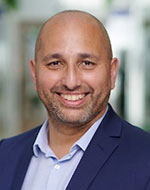 MEROUANE DEBBAH
MEROUANE DEBBAH
Mérouane Debbah received the M.Sc. and Ph.D. degrees from Ecole Normale Supérieure Paris-Saclay, Cachan, France. He is currently the Chief Researcher with the Technology Innovation Institute, Abu Dhabi, UAE. He leads the AI and Digital Science Research Center. His research interests include fundamental mathematics, algorithms, statistics, information, and communication sciences research. He is a WWRF Fellow, a Eurasip Fellow, an Institut Louis Bachelier Fellow, and a membre émérite SEE. He was the recipient of more than 25 best paper awards from major IEEE conferences and journals. From 2021 to 2022, he is an IEEE Signal Processing Society Distinguished Industry Speaker.
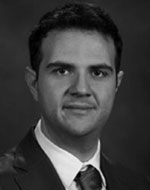 WALID SAAD
WALID SAAD
Walid Saad [s'07, M'10, Sm'15, F'19] received his Ph.D. degree from the University of Oslo in 2010. He is a Professor at the Department of Electrical and Computer Engineering at Virginia Tech where he leads the Network sciEnce, Wireless, and Security (NEWS) laboratory. His research interests include wireless networks, machine learning, game theory, cybersecurity, unmanned aerial vehicles, semantic communications, and cyber-physical systems. He was the author/co-author of eleven conference best paper awards and of the 2015 and 2022 IEEE ComSoc Fred W. Ellersick Prize.
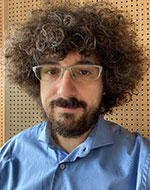 AURELIEN SAGNIER
AURELIEN SAGNIER
Aurélien Sagnier entered the Ecole Normale Supérieure de Cachan-Antenne de Bretagne (France) in 2009 where he received his Master in mathematics in 2012. In 2017 he completed his PhD in Université Paris 7 Diderot working on some toposic constructions of A.Connes and C.Consani’s program to study Riemann’s zeta function. From 2017 to 2019 he joined as postdoc the CMAP and LIX in Ecole Polytechnique (France) and from 2019 to 2022 he was a J.J.Sylvester assistant professor at Johns Hopkins University (United States). His research interests lie in topos theory and their applications to several fields such as number theory, tropical geometry, direct algebraic topology, neural networks and information theory. In August 2022, he joined Huawei in the AWT Laboratory and its semantics team under the leadership of Jean-Claude Belfiore.
SPEAKER SESSION 1: ROAD TO 6G
Monday, 27 March 2023 14:00-15:30 Lomond Auditorium
Shaping a 6G Architecture - Open, Efficient, Resilient
Speaker: Göran Rune, Ericsson
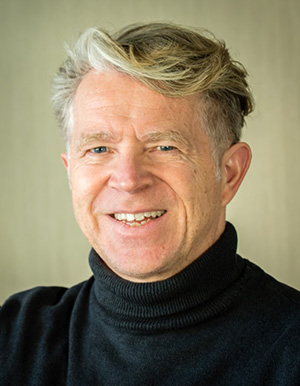 Göran Rune is principal researcher on senior expert level at Ericsson Research. He is currently the technical coordinator of the network architecture research in Ericsson’s 6G research program. Göran has 30+ years of experience in mobile systems and network architectures spanning from 2G and early system engineering roles for PDC working in Japan, through 3G and 4G in product management, standardization, and technology expert roles driving systems and packet core architectures, and into 5G and its evolution using cloud native network architectures. He holds a Licentiate of Engineering degree and a Master of Science degree, both from Linköping University, Sweden.
Göran Rune is principal researcher on senior expert level at Ericsson Research. He is currently the technical coordinator of the network architecture research in Ericsson’s 6G research program. Göran has 30+ years of experience in mobile systems and network architectures spanning from 2G and early system engineering roles for PDC working in Japan, through 3G and 4G in product management, standardization, and technology expert roles driving systems and packet core architectures, and into 5G and its evolution using cloud native network architectures. He holds a Licentiate of Engineering degree and a Master of Science degree, both from Linköping University, Sweden.
Technologies for 6G Devices
Speaker: Douglas Castor, InterDigital
 Douglas Castor is Head of Wireless Research at Interdigital, where he leads the incubation and development of emerging technologies for wireless systems. Since joining InterDigital in 2000, he has led teams in both product development and research innovations for 3G through 6G cellular and IEEE Wi-Fi technologies. Key topics currently under Doug’s leadership include extending cellular to sub-THz frequencies, enhancing performance through extreme MIMO and spectrum sharing techniques, enabling “near zero power” cellular modems, and the integration of communication and computing systems. Prior to joining InterDigital, Doug held Communication Engineer positions at General Electric, Lockheed Martin, and General Atronics. He holds over 25 US granted patents. Doug earned a BSEE from the Pennsylvania State University (1992) and MSEE degree from the University of Pennsylvania (1995). Doug is a founder and leader for the annual 6G World 6G Symposium. He currently holds industry board positions at NYU Wireless, and Northeastern University’s Wireless Internet of Things. Doug is a Vice Chair of ATIS’s Next G Alliance 6G National Roadmap Working Group, and was editor of its first 6G Roadmap Report.
Douglas Castor is Head of Wireless Research at Interdigital, where he leads the incubation and development of emerging technologies for wireless systems. Since joining InterDigital in 2000, he has led teams in both product development and research innovations for 3G through 6G cellular and IEEE Wi-Fi technologies. Key topics currently under Doug’s leadership include extending cellular to sub-THz frequencies, enhancing performance through extreme MIMO and spectrum sharing techniques, enabling “near zero power” cellular modems, and the integration of communication and computing systems. Prior to joining InterDigital, Doug held Communication Engineer positions at General Electric, Lockheed Martin, and General Atronics. He holds over 25 US granted patents. Doug earned a BSEE from the Pennsylvania State University (1992) and MSEE degree from the University of Pennsylvania (1995). Doug is a founder and leader for the annual 6G World 6G Symposium. He currently holds industry board positions at NYU Wireless, and Northeastern University’s Wireless Internet of Things. Doug is a Vice Chair of ATIS’s Next G Alliance 6G National Roadmap Working Group, and was editor of its first 6G Roadmap Report.
What to Expect in 6G: A Standardization Perspective
Speaker: Matthew Baker, Nokia
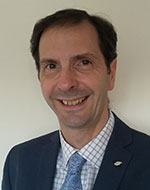 Matthew Baker is a Nokia Bell Labs Fellow and leads a RAN standardization team for Nokia. He has contributed to the standardization of 3G, 4G and 5G in 3GPP and held the posts of Chairman and subsequently Vice-Chairman of 3GPP TSG RAN WG1 between 2009 and 2017. He holds degrees in Engineering and Electrical and Information Sciences from the University of Cambridge, UK. He is a Chartered Engineer and a Member of the Institution of Engineering and Technology, and has been a Visiting Professor at the University of Reading, UK. He is co-editor of the book “LTE – The UMTS Long Term Evolution: From Theory to Practice” (Wiley, Second Edition 2012), has authored many papers and holds several hundred patents in the field of mobile communications.
Matthew Baker is a Nokia Bell Labs Fellow and leads a RAN standardization team for Nokia. He has contributed to the standardization of 3G, 4G and 5G in 3GPP and held the posts of Chairman and subsequently Vice-Chairman of 3GPP TSG RAN WG1 between 2009 and 2017. He holds degrees in Engineering and Electrical and Information Sciences from the University of Cambridge, UK. He is a Chartered Engineer and a Member of the Institution of Engineering and Technology, and has been a Visiting Professor at the University of Reading, UK. He is co-editor of the book “LTE – The UMTS Long Term Evolution: From Theory to Practice” (Wiley, Second Edition 2012), has authored many papers and holds several hundred patents in the field of mobile communications.
SPEAKER SESSION 2: 6G: What does it mean to Industry?
Monday, 27 March 2023 16:00-17:30 Lomond Auditorium
Challenges and Opportunities for Operators in 6G
Speaker: Chih-Lin I, China Mobile
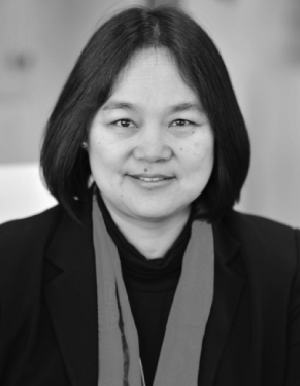 Chih-Lin I (Fellow, IEEE) received the Ph.D. degree in EE from Stanford University. She is currently the CMCC Chief Scientist of wireless technologies. She has published over 200 papers in scientific journals, book chapters, and conferences. She holds over 100 patents. She is the coauthor of the book Green and Software-defined Wireless Networks—From Theory to Practice and has also co-edited two books: Ultra-dense Networks—Principles and Applications and 5G Networks—Fundamental Requirements, Enabling Technologies, and Operations Management. Her current research interest includes ICDT deep convergence: from green and soft to open and smart. She is a member of IEEE ComSoc SDB, SPC, and CSCN-SC; and a Scientific Advisory Board Member of Singapore NRF. She is a fellow of WWRF. She has won the 2005 IEEE ComSoc Stephen Rice Prize, the 2018 IEEE ComSoc Fred W. Ellersick Prize, the 7th IEEE Asia–Pacific Outstanding Paper Award, and the 2015 IEEE Industrial Innovation Award for Leadership and Innovation in Next-Generation Cellular Wireless Networks. She is the Chair of O-RAN Technical Steering Committee and an O-RAN Executive Committee Member and the Chair of FuTURE 5G/6G SIG and the Wireless AI Alliance (WAIA) Executive Committee. She is an Executive Board Member of GreenTouch, a Network Operator Council Founding Member of ETSI NFV, a Steering Board Member and the Vice Chair of WWRF, a Steering Committee Member and the Publication Chair of IEEE 5G and Future Networks Initiatives, the Founding Chair of IEEE WCNC Steering Committee, and the Director of IEEE ComSoc Meetings and Conferences Board. She is the Executive Co-Chair of IEEE GLOBECOM 2020, IEEE WCNC 2007, and IEEE WOCC 2004 and 2000. She is a Senior Editor of IEEE Transactions on Green Communications and Networking and an Area Editor of ACM/IEEE Transactions on Networking.
Chih-Lin I (Fellow, IEEE) received the Ph.D. degree in EE from Stanford University. She is currently the CMCC Chief Scientist of wireless technologies. She has published over 200 papers in scientific journals, book chapters, and conferences. She holds over 100 patents. She is the coauthor of the book Green and Software-defined Wireless Networks—From Theory to Practice and has also co-edited two books: Ultra-dense Networks—Principles and Applications and 5G Networks—Fundamental Requirements, Enabling Technologies, and Operations Management. Her current research interest includes ICDT deep convergence: from green and soft to open and smart. She is a member of IEEE ComSoc SDB, SPC, and CSCN-SC; and a Scientific Advisory Board Member of Singapore NRF. She is a fellow of WWRF. She has won the 2005 IEEE ComSoc Stephen Rice Prize, the 2018 IEEE ComSoc Fred W. Ellersick Prize, the 7th IEEE Asia–Pacific Outstanding Paper Award, and the 2015 IEEE Industrial Innovation Award for Leadership and Innovation in Next-Generation Cellular Wireless Networks. She is the Chair of O-RAN Technical Steering Committee and an O-RAN Executive Committee Member and the Chair of FuTURE 5G/6G SIG and the Wireless AI Alliance (WAIA) Executive Committee. She is an Executive Board Member of GreenTouch, a Network Operator Council Founding Member of ETSI NFV, a Steering Board Member and the Vice Chair of WWRF, a Steering Committee Member and the Publication Chair of IEEE 5G and Future Networks Initiatives, the Founding Chair of IEEE WCNC Steering Committee, and the Director of IEEE ComSoc Meetings and Conferences Board. She is the Executive Co-Chair of IEEE GLOBECOM 2020, IEEE WCNC 2007, and IEEE WOCC 2004 and 2000. She is a Senior Editor of IEEE Transactions on Green Communications and Networking and an Area Editor of ACM/IEEE Transactions on Networking.
Challenges and Opportunities of a LEO based Mobile Networks for 6G
Speaker: Arunabha Ghosh, Amazon
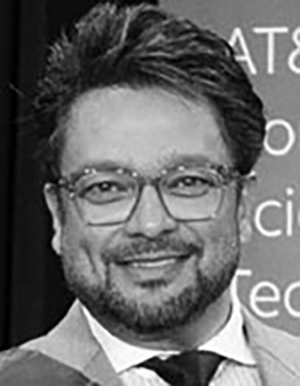 Arunabha Ghosh is a Senior Manager at Amazon Lab126, responsible for communication systems design for Kuiper. Previously, he was an AT& T Fellow and the director of the Advanced Wireless Technology Group at AT& T Labs. He received his Ph.D. from the University of Illinois at Urbana-Champaign.
Arunabha Ghosh is a Senior Manager at Amazon Lab126, responsible for communication systems design for Kuiper. Previously, he was an AT& T Fellow and the director of the Advanced Wireless Technology Group at AT& T Labs. He received his Ph.D. from the University of Illinois at Urbana-Champaign.
Differentiable Tools for Digital Twin Networks
Speaker: Jakob Hoydis, NVIDIA
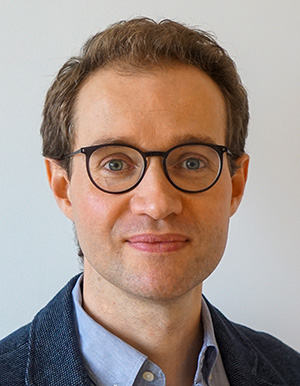 Jakob Hoydis is a Principal Research Scientist at NVIDIA working on the intersection of machine learning and wireless communications. Prior to this, he was Head of a research department at Nokia Bell Labs, France, and co-founder of the social network SPRAED. He obtained the diploma degree in electrical engineering from RWTH Aachen University, Germany, and the Ph.D. degree from Supéléc, France. From 2019-2021, he was chair of the IEEE COMSOC Emerging Technology Initiative on Machine Learning as well as Editor of the IEEE Transactions on Wireless Communications. Since 2019, he is Area Editor of the IEEE JSAC Series on Machine Learning in Communications and Networks. He is recipient of the 2019 VTG IDE Johann-Philipp-Reis Prize, the 2019 IEEE SEE Glavieux Prize, the 2018 IEEE Marconi Prize Paper Award, the 2015 IEEE Leonard G. Abraham Prize, the IEEE WCNC 2014 Best Paper Award, the 2013 VDE ITG Förderpreis Award, and the 2012 Publication Prize of the Supéléc Foundation. He has received the 2018 Nokia AI Innovation Award, as well as the 2018 and 2019 Nokia France Top Inventor Awards. He is a co-author of the textbook “Massive MIMO Networks: Spectral, Energy, and Hardware Efficiency” (2017). He is a 2023 Distinguished Industry Speaker of the IEEE Signal Processing Society. He is one of the maintainers and core developers of Sionna, a GPU-accelerated open-source link-level simulator for next-generation communication systems.
Jakob Hoydis is a Principal Research Scientist at NVIDIA working on the intersection of machine learning and wireless communications. Prior to this, he was Head of a research department at Nokia Bell Labs, France, and co-founder of the social network SPRAED. He obtained the diploma degree in electrical engineering from RWTH Aachen University, Germany, and the Ph.D. degree from Supéléc, France. From 2019-2021, he was chair of the IEEE COMSOC Emerging Technology Initiative on Machine Learning as well as Editor of the IEEE Transactions on Wireless Communications. Since 2019, he is Area Editor of the IEEE JSAC Series on Machine Learning in Communications and Networks. He is recipient of the 2019 VTG IDE Johann-Philipp-Reis Prize, the 2019 IEEE SEE Glavieux Prize, the 2018 IEEE Marconi Prize Paper Award, the 2015 IEEE Leonard G. Abraham Prize, the IEEE WCNC 2014 Best Paper Award, the 2013 VDE ITG Förderpreis Award, and the 2012 Publication Prize of the Supéléc Foundation. He has received the 2018 Nokia AI Innovation Award, as well as the 2018 and 2019 Nokia France Top Inventor Awards. He is a co-author of the textbook “Massive MIMO Networks: Spectral, Energy, and Hardware Efficiency” (2017). He is a 2023 Distinguished Industry Speaker of the IEEE Signal Processing Society. He is one of the maintainers and core developers of Sionna, a GPU-accelerated open-source link-level simulator for next-generation communication systems.



